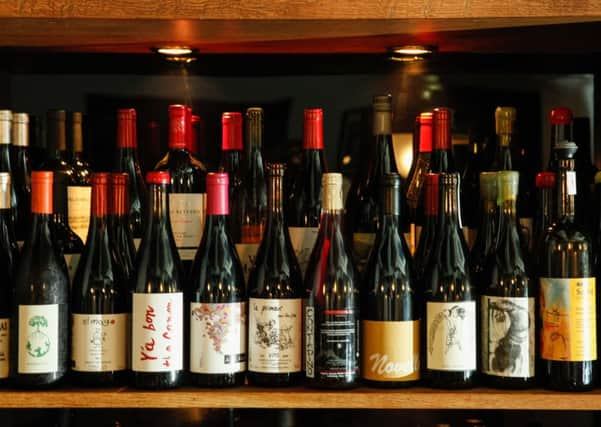Edinburgh could become leading wine producer by 2100
This article contains affiliate links. We may earn a small commission on items purchased through this article, but that does not affect our editorial judgement.


DOWNLOAD THE EDINBURGH EVENING NEWS APP ON ITUNES OR GOOGLE PLAY
Britain’s changing levels of temperature and rainfall could produce ideal conditions for sauvignon blanc and chardonnay in as yet unfamiliar wine areas such as Peckham and Milton Keynes, according to the University College London study for Laithwaite’s Wine.
Advertisement
Hide AdAdvertisement
Hide AdProfessor Mark Maslin and Lucien Georgeson used average temperature and rainfall conditions required for growing different grape varieties with predicted changes in climate to map changes to British viticulture over the next 85 years.
They worked on the theory that temperatures are expected to increase by at least a further 2.2C by 2100 and rainfall will increase by 5.6%.
Professor Maslin said: “Climate is critical to successful grape cultivation. This study could signal how we think long-term about British wine production and redraw the future wine map of the world.
“However, exactly where would be best for particular grapes will depend on site, slope, aspect, soil and drainage as wine-making is as much an art as it is a science.”
Advertisement
Hide AdAdvertisement
Hide AdDavy Zyw, of Laithwaite’s Wine, said: “It’s not long ago that experts scoffed at the idea of English, let alone wider British wine.
“Now thanks to a changing climate, as well as passion and expertise, we could see wine buyers from all over the world coming to taste the latest UK vintages in a few generations.”
The study said malbec could be produced in the Thames Estuary area in places such as Romford, Southend and as far west as Slough, while the Severn Pocket would eventually be perfect for merlot.
Changing conditions in the Midlands and Central England could see the Black Country cultivating a number of grape varieties such as chardonnay, Riesling, pinot noir and sauvignon blanc, while the North East of England including Newcastle and as far north as Edinburgh are predicted to be the best place for pinot grigio.